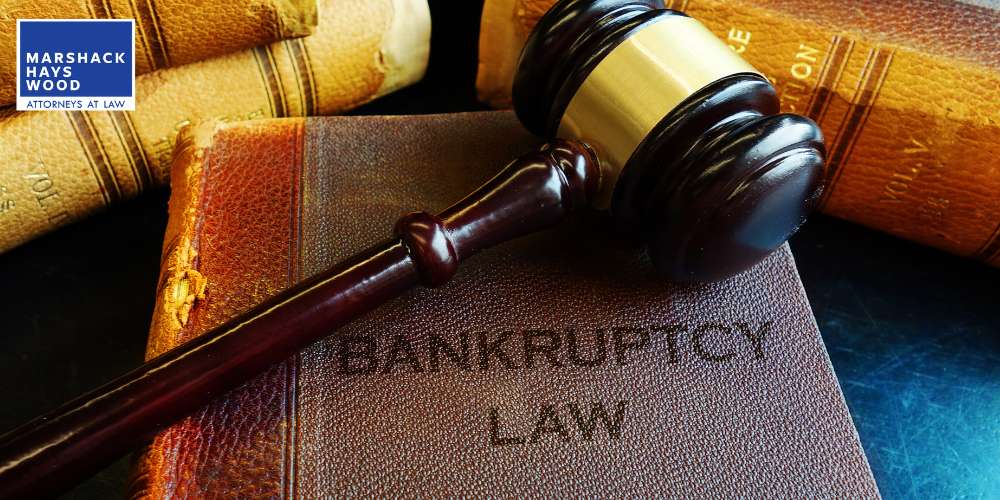Orange County Creditor Harassment Lawyer
Home » Creditor Harassment
Practice Areas
Experienced Debt Collector Harassment Lawyers in Orange County, California

Relentless debt collection harassment can cause significant stress, especially for those facing financial difficulties. If you need help stopping creditor harassment, call the creditor harassment lawyers at Marshack Hays Wood today. Our team helps debtors understand the legal rights that protect them from certain forms of debt collection harassment.
If a creditor or debt collection agency is consistently harassing you, you may have grounds to take legal action against them. The team at Marshack Hays Wood can review your case and determine whether or not your creditor has violated state or federal laws.
Our attorneys are committed to alleviating your financial burden, whether that is through a creditor harassment lawsuit, filing bankruptcy, an alternative dispute resolution, or other forms of debt relief. Contact us today to speak with one of the experienced lawyers on our team regarding your unique financial situation.
You can reach our law offices by calling (949) 333-7777 or using our online contact form to schedule a free initial consultation with a creditor harassment attorney on our team.
What is Considered Harassment From a Debt Collector?
Creditor harassment occurs when the original creditor on a debt (the person who loans the money) goes beyond ethical and legal limits to collect on that debt later on. Debt collector harassment involves similar harassment from a third-party debt collector. Although these terms are often used interchangeably, different federal and state laws apply to creditor collection practices and debt collector practices. The key difference is whether the debt is being collected by the original creditor (such as a bank or a credit card company) or a third-party debt collector (such as a debt collection company).
Some common harassing tactics used by abusive debt collectors and creditors include repetitive phone calls, threatening or abusive language, and visiting your workplace or home. If you are experiencing unfair or unlawful collection practices, a creditor harassment lawyer at Marshack Hays Wood can step in to protect your consumer rights and hold abusive creditors and collectors accountable.

Signs You’re Experiencing Creditor Harassment
It may be hard to identify creditor harassment, especially if you are unfamiliar with the laws that regulate debt collection. Below are some signs that you may be experiencing creditor harassment.
- Excessive or late-night phone calls
- Threats of wage garnishment or lawsuits
- Creditors contacting family members, neighbors, and other people
- Demanding more than legally owed
- Using misleading information to collect debt
Creditors and debt collectors may also pressure you to hand over personal and financial information that you do not have to provide them. Avoid giving sensitive information, such as your bank account or social security number. Providing such information leaves you vulnerable to scams, fraud, and even identity theft.
California Creditor Harassment Laws
In the state of California, the Rosenthal Fair Debt Collection Practices Act (RFDCPA) outlines specific regulations that creditors must adhere to when attempting to collect debts. This act protects debtors from unfair and deceptive practices that creditors may use to seek payment.
What Creditors Can and Can’t Do
Creditors are allowed to attempt to collect the debt they are owed as long as they follow state and federal regulations. They may contact debtors regarding debts, provide accurate debt information to credit reporting companies, and file a lawsuit against a debtor for valid claims within the statute of limitations for California debt.
Under the RFDCPA, California debt collectors and creditors cannot:
- Threaten debtors with violence or other illegal acts
- Use obscene or profane language when communicating with debtors
- Make repeated harassing calls to debtors in a short amount of time
- Make false threats or statements to debtors
- Call debtors at odd hours of the night
- Send embarrassing information to debtors in the mail
- Send mail to debtors with information about their debt

The Fair Debt Collection Practices Act (FDCPA)
In addition to California state law, consumers are also protected from debt collector harassment under federal law. The Fair Debt Collection Practices Act (FDCPA) establishes guidelines that debt collection agencies must follow when communicating with debtors. Similar to the RFDCPA, the FDCPA guidelines include restrictions on harassment, false representations, and unfair collection practices.
While the federal law and California state law on creditor harassment are similar, there are a few key differences to note. For example, FDCPA does not protect consumers from actions taken by the original creditor on the debt; it only protects them from third-party debt collectors. However, the RFDCPA protects California residents from harassment by original creditors.
Additionally, the FDCPA protects consumers from debt-related harassment by lawyers, whereas the RFDCPA does not. Debtors need to know who is harassing them so that they can file legal action under the correct act.
What Types of Debts are Covered by the FDCPA?
The Fair Debt Collection Practices Act protects consumers with specific types of debts but also excludes certain types of debts, such as business debts.
The FDCPA protects debtors with:
- Credit card debt
- Medical debt
- Personal loan debt
- Auto loan debt
- Mortgage debt
- Student loan debt
- Household debt
If you are struggling under the financial strain of any type of debt, the legal team at Marshack Hays Wood can help you. Our Orange County credit card debt attorneys, medical debt attorneys, and bankruptcy attorneys provide crucial guidance to help you achieve debt relief.
Can You Sue a Debt Collector for Harassment?
Yes, individuals have the legal right to sue debt collectors for harassment under the provisions of the FDCPA. California residents also have the right to file lawsuits against their original creditors under the provisions of the RFDCPA.
Normally, any lawsuits filed under either statute must be filed within one year of the illegal action. Individuals who file creditor or debt collector harassment suits can recover compensation for their losses, up to $1,000 in statutory damages, and attorney fees.
If you have suffered from unfair debt collection efforts in California, the creditor harassment lawyers at Marshack Hays Wood can provide the help you need. Our dedicated debt collection defense attorneys understand how difficult it can be to receive harassing and threatening calls, emails, and messages, which is why we want to help you receive compensation for your losses.

According to the Fair Debt Collection Practices Act (FDCPA), debt collectors are generally allowed to contact you by mail, phone, fax, or in person. However, if you inform a debt collector in writing that you do not wish to be contacted, they are legally required to stop contacting you, with certain exceptions. They may only communicate with you to notify you if they have taken legal action against you or if they have changed their collection efforts.
Yes, debt collectors must provide clear identification when contacting you about a debt. They must disclose their identity and inform you that they are attempting to collect a debt. This ensures you can verify their identity as well as the alleged debt.
If you receive a communication that lacks proper identification or raises doubts about its authenticity, it’s crucial to address the issue as soon as possible with an attorney. If the debt collector continues to contact you, you can direct them to your attorney, who can speak to the debt collector on your behalf.
There is no set limit on the number of phone calls a debt collector can make on a given debt. However, they may not make repeated phone calls in a short period of time. For example, if a debt collector calls seven times within a seven-day time frame OR calls within seven days from their last conversation with you regarding a debt, it may be considered harassment.
In general, debt collectors are prohibited from discussing your debt with anyone other than you, your attorney, or a consumer reporting agency. They can contact other individuals in your life to obtain your contact information, but they cannot discuss your debt with those people. They cannot disclose that they are trying to contact you regarding an outstanding debt.
Debt collectors can contact your employer to ask about your location, verify employment, and seek contact information. They may be able to contact your employer if your wages are being garnished, but they cannot discuss your debt with them. If you believe a debt collector has violated these privacy provisions, it’s important to document the incident and seek legal advice.
In general, victims of this form of harassment can file a creditor or debt collection harassment lawsuit against the harassing creditor or collection agency within one (1) year of the illegal action.
If you believe you have experienced creditor harassment and are considering a lawsuit, consult with an experienced attorney as soon as possible. Delaying action could result in the loss of your right to pursue legal recourse.
Yes, if you were the victim of creditor or debt collector harassment, you may be able to recover compensation. Recoverable compensation includes actual damages you suffer as a result of the harassment, attorney fees, court costs, and up to $1,000 in statutory damages.
Actual damages from debt collection harassment can include medical bills, lost wages, and emotional distress caused by the harassment. To effectively pursue compensation, it’s important to document the harassment, gather evidence, and take legal action within the one-year statute of limitations.
How a Creditor Harassment Lawyer Can Help
If you are dealing with unfair debt collection practices, a creditor harassment lawyer can help you take control of the situation and put a stop to abusive tactics. At Marshack Hays Wood, our law offices provide effective strategies to stop creditor harassment and ensure that your consumer rights are protected.
Harassment can come in many forms, including misleading practices, threatening phone calls, or aggressive collection actions that violate federal or state law. Agencies such as the Federal Trade Commission oversee these matters, but having a lawyer by your side ensures that your case receives focused attention and that all of your legal options are explored.
Whether it involves drafting cease-and-desist letters, filing complaints, or pursuing damages in court, our team works to hold abusive creditors and debt collectors accountable. With skilled legal representation, you can fight back against harassment and work toward restoring your peace of mind.

Bankruptcy as a Tool to End Creditor Harassment
For some clients, the most effective way to stop credit harassment is through bankruptcy. When a case is filed in bankruptcy court, the automatic stay goes into effect, requiring all collection efforts and creditor contact to stop immediately. This powerful protection provides immediate relief from harassing calls, letters, and lawsuits.
The Orange County bankruptcy attorneys at our law firm understand that creditor harassment is often a symptom of underlying financial problems. By addressing these issues directly, bankruptcy can offer more than temporary relief; it can provide the fresh start you need to move forward.
Our attorneys help individuals facing financial hardship explore whether Chapter 7 or Chapter 13 bankruptcy is the right option. Beyond ending creditor harassment, bankruptcy can eliminate or restructure debt, giving you the ability to rebuild your finances with confidence.
Contact an Orange County Creditor Harassment Lawyer at Marshack Hays Wood Today
Any form of harassment can take a toll on your well-being, and debt collection harassment is no exception. At Marshack Hays Wood LLP, our legal team provides Orange County residents with the support they need to stand up against deceptive and abusive debt collection practices.
Because these cases can be stressful and highly personal, we focus on delivering both compassionate guidance and effective legal representation. Our mission is to help you assert your rights, end creditor harassment, and take back control of your financial future.
Our experienced debt collector harassment lawyers carefully document each instance of abuse, building a strong case for compensation related to your financial and emotional losses. In addition, our Chapter 7 and Chapter 13 bankruptcy attorneys are available to help clients explore broader financial relief options when needed.
When you are ready to take action, call (949) 333-7777 or contact us online to schedule a free consultation with one of our experienced attorneys at Marshack Hays Wood.
READY TO GET STARTED?
At Marshack Hays Wood, our attorneys provide the legal support you need to move forward with confidence. Let us help you take the first step toward financial stability.
